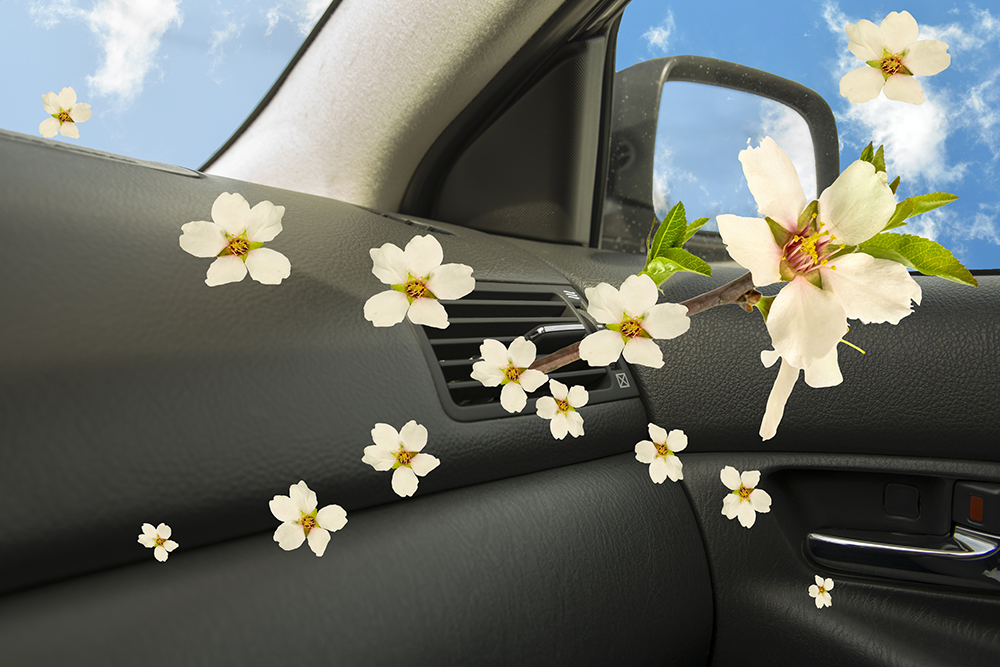Tips To Keep Your Vehicle Smelling Fresh

How can you make your vehicle interior pass the sniff test of even the most discriminating nose?
A co-worker asks you for a ride home, unaware aromas of dingy yoga mat and stale coffee emanating from the stale interior. Introducing the cabin to a deodorizer could prevent your guest from sticking their head out the window all the way home.
“Fragrances are a temporary fix,” said Larry McIsaac, CEO of Kraco Enterprises, makers of Ozium deodorizer. “They work by putting off a scent that’s so overpowering you can’t help but smell it, or by desensitizing it altogether."
Deodorizers work on a microbial level. The ability to kill cold and flu viruses makes air sanitizers a darling of hospital sanitation crews. The products typically come from an Aerosol can, though gel canisters are growing in popularity.
“It’s something you can leave in your gym locker, your teenager’s bedroom or beneath the driver’s seat,” McIsaac said of the gel. “It works exceptionally well because the container is constantly exposed to an isolated environment and cleaning the air.”
McIsaac isn’t suggesting motorists abandon air fresheners. After all, Kraco manufactures the extensive line of Glade fragrances. Deodorizing simply provides a clean slate for your preferred fragrance to do its job, he said.
Below, McIsaac and Susan Broyles, Kraco’s senior product manager, offer the following information for improving cabin environment with deodorizers and air fresheners:
- Find source of odor. Sometimes it’s tough to locate. Perhaps the kids left the cheddar crackers in the car on a hot day. Maybe cigarette smoke lingers in the seat cushions. Clean and vacuum thoroughly before deodorizing for best results.
- Leave no stone unturned: Inspect the trunk/cargo space, glove box and center console during the cleaning.
- Set your ambiance: Find the scent that soothes/invigorates/entices you. There’s no shortage of options.
- Choose a delivery system: Sprays, vent clips, gels, waxes and cardboard cutouts permeate the market. Heat often determines the lifespan of the products. An air freshener left in a room-temperature environment will last longer than one exposed to intense heat and wild fluctuations.